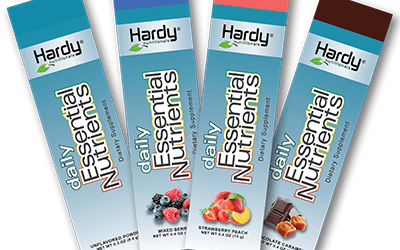Emerging Evidence and Clinical Applications for Nutrition and TBI
Traumatic brain injury (TBI) represents one of the most significant challenges in modern healthcare, with profound implications for cognitive function, emotional regulation, and overall quality of life. While conventional rehabilitation approaches remain essential, growing evidence suggests that targeted nutritional interventions may enhance recovery processes and potentially improve long-term outcomes. The Dictionary of Supplements and Herbs for mental health provides valuable insights into nutritional compounds that may support brain health following injury.
The Neurometabolic Cascade Following Brain Injury
Brain injury initiates a complex cascade of metabolic disturbances, including oxidative stress, neuroinflammation, excitotoxicity, and disrupted energy metabolism. These processes can continue for months or even years following the initial injury, creating an extended window for potential therapeutic intervention.
Research published in the Journal of Neurotrauma has demonstrated that nutritional status significantly influences recovery trajectories, with deficiencies in key nutrients potentially exacerbating secondary injury mechanisms and impairing repair processes. Conversely, optimized nutrition may support neuroprotection and enhance neuroplasticity during the recovery period.
Antioxidants and Neuroprotection Following Brain Injury
The massive oxidative stress that occurs following brain injury represents a primary target for nutritional intervention. Vitamin C, a powerful water-soluble antioxidant, has demonstrated neuroprotective effects in experimental models of TBI, with clinical research suggesting potential benefits for cognitive recovery.
A study published in Critical Care Medicine found that high-dose vitamin C administration in the acute phase following severe TBI was associated with reduced biomarkers of oxidative damage and improved neurological outcomes at six-month follow-up.
Alpha-lipoic acid, another potent antioxidant, has shown promise in experimental models of TBI. Research from the University of California found that alpha-lipoic acid supplementation reduced markers of oxidative stress and preserved mitochondrial function in brain tissue following injury, suggesting potential applications for recovery support.
Grape seed extract, rich in proanthocyanidins with powerful antioxidant properties, has demonstrated neuroprotective effects in multiple experimental models. A 2022 study in the Journal of Neurotrauma found that grape seed extract reduced blood-brain barrier disruption and neuroinflammation following controlled cortical impact injury, highlighting its potential role in TBI recovery.
Anti-inflammatory Nutrients and Neuroinflammation
Persistent neuroinflammation represents a key factor in secondary injury processes following TBI, creating a compelling rationale for anti-inflammatory nutritional interventions. Ginger root extract contains bioactive compounds that demonstrate significant anti-inflammatory effects, potentially addressing the neuroinflammatory component of brain injury.
Research published in Molecular Neurobiology demonstrated that ginger-derived compounds reduced microglial activation and pro-inflammatory cytokine production in an experimental model of brain injury, suggesting potential applications for recovery support.
Omega-3 fatty acids, particularly DHA (docosahexaenoic acid), have received substantial research attention for their role in TBI recovery. A landmark study from UCLA found that omega-3 supplementation following experimental TBI reduced axonal injury and cognitive deficits, with researchers identifying reduced neuroinflammation as a primary mechanism.
Mitochondrial Support and Energy Metabolism
Brain injury creates a state of metabolic crisis, with impaired energy production potentially limiting recovery processes. Acetyl-L-carnitine supports mitochondrial function and energy production in neural tissues, with research suggesting potential benefits for brain injury recovery.
A clinical trial published in the Archives of Physical Medicine and Rehabilitation found that acetyl-L-carnitine supplementation improved cognitive function in patients with severe TBI, with effects particularly pronounced for attention and executive function. The researchers hypothesized that improved mitochondrial function and energy metabolism might underlie these cognitive benefits.
Coenzyme Q10, another critical factor in mitochondrial energy production, has shown promise in experimental models of TBI. Research from the University of Miami found that CoQ10 administration preserved mitochondrial function and reduced markers of oxidative damage following controlled cortical impact injury.
B Vitamins and Neural Repair Processes
The B vitamin complex plays a critical role in numerous processes relevant to brain injury recovery, including energy metabolism, neurotransmitter synthesis, and DNA repair. Thiamin (Vitamin B1) supports glucose metabolism in brain cells, with deficiency potentially exacerbating energy crisis following injury.
Research published in the Journal of Neurotrauma demonstrated that thiamin administration improved cerebral energy metabolism and reduced neuronal death in an experimental model of TBI, highlighting its potential importance in the acute phase of injury.
Vitamin B6 serves as a cofactor in the synthesis of numerous neurotransmitters affected by brain injury, while folate and vitamin B12 support DNA repair processes critical for cellular recovery.
A clinical study published in the Journal of Neurotrauma found that vitamin B complex supplementation improved cognitive function and reduced depression symptoms in patients with TBI, suggesting broader benefits beyond basic neuroprotection.
Minerals and Neuronal Function
Several minerals play critical roles in neuronal function and may support recovery processes following brain injury. Zinc modulates glutamatergic neurotransmission and supports numerous enzymes involved in brain metabolism, with research suggesting a potential role in recovery from brain injury.
A study published in the Journal of Neuroscience found that zinc supplementation reduced neuronal death and improved behavioral outcomes in an experimental model of TBI, with researchers identifying reduced excitotoxicity as a primary mechanism.
Magnesium has received particular attention for its potential neuroprotective effects following brain injury. Research from the University of Pennsylvania demonstrated that magnesium administration in the acute phase of injury reduced excitotoxic damage and improved long-term cognitive outcomes in an experimental model.
A clinical trial published in Critical Care Medicine found that intravenous magnesium administration within 8 hours of severe TBI improved neurological outcomes at 6-month follow-up, suggesting potential benefits for magnesium supplementation during the recovery period.
Adaptogenic Herbs and Neuroplasticity
The process of recovery from brain injury requires substantial neuroplasticity, potentially creating a role for adaptogenic herbs that support stress adaptation and neural function. Ginkgo biloba has demonstrated effects on cerebral blood flow and neuroprotection, with potential applications for brain injury recovery.
A systematic review published in the Journal of Ethnopharmacology found that ginkgo extract improved cognitive function across multiple studies of patients with various forms of brain injury, including traumatic brain injury and stroke. Improved cerebral blood flow and reduced oxidative stress were identified as potential mechanisms.
Eleuthero root contains compounds that support stress adaptation and may enhance recovery processes following brain injury. Research from South Korea demonstrated that eleuthero supplementation improved cognitive performance and reduced markers of oxidative stress in an experimental model of cerebral ischemia, suggesting potential applications for traumatic brain injury.
Amino Acids and Neurotransmitter Support
Brain injury frequently disrupts neurotransmitter systems, potentially contributing to cognitive and emotional symptoms. Specific amino acids serve as precursors to neurotransmitters affected by brain injury, suggesting a potential role in recovery support.
NAC (N-acetylcysteine) has gained significant research attention for its multiple mechanisms of action relevant to brain injury, including antioxidant effects, anti-inflammatory properties, and modulation of glutamatergic transmission.
A double-blind, placebo-controlled trial published in PLOS ONE found that NAC treatment improved cognition in veterans with blast-related mild traumatic brain injury, with benefits persisting after the cessation of treatment. The researchers hypothesized that multiple mechanisms, including reduced neuroinflammation and improved glutathione status, might contribute to these clinical improvements.
Phospholipids and Membrane Integrity
Brain injury disrupts cellular membranes, creating a rationale for nutrients that support membrane integrity and function. Phosphorus, a component of phospholipids essential for neural membrane structure, plays a critical role in maintaining cellular integrity following injury.
Research from the National Institutes of Health has demonstrated that phospholipid supplementation improved cognitive outcomes in experimental models of TBI, potentially through enhanced membrane repair and preserved synaptic function.
Choline, a precursor to acetylcholine and phosphatidylcholine, has shown promise in supporting cognitive recovery following brain injury. A study published in the Journal of Neurotrauma found that choline supplementation enhanced cognitive function and reduced neural damage in an experimental model of TBI, with researchers identifying improved membrane integrity and acetylcholine signaling as potential mechanisms.
Algae-Based Supplements and Brain Recovery
Several algae-based supplements have demonstrated properties potentially relevant to brain injury recovery. Spirulina contains unique phycocyanins with antioxidant and anti-inflammatory properties, potentially addressing multiple aspects of the secondary injury cascade.
Research published in the Journal of Neuroinflammation found that spirulina supplementation reduced neuroinflammation and oxidative damage following experimental brain injury, with corresponding improvements in cognitive function during the recovery period.
Similarly, chlorella and Atlantic kelp provide unique bioactive compounds and trace minerals that may support recovery processes, though clinical research specific to brain injury remains limited.
Clinical Applications and Personalized Approaches
The complexity of brain injury necessitates a personalized approach to nutritional intervention. The comprehensive nutritional assessment described in the Dictionary of Supplements provides a framework for identifying individual nutritional imbalances that may impact recovery trajectories.
Clinicians interested in integrating nutritional approaches may consider targeted assessments of antioxidant status, inflammatory markers, mitochondrial function, and neurotransmitter metabolites to guide personalized interventions. Collaboration between neurologists, rehabilitation specialists, and nutrition professionals offers the most comprehensive approach to addressing the multifaceted nature of brain injury recovery.
As research in neutrition (neurological nutrition) continues to evolve, the integration of evidence-based nutritional strategies may enhance conventional rehabilitation approaches for brain injury, potentially improving long-term outcomes across diverse patient populations.
For more information on supplemens for mental health consult our comprehensive guide for micronutrient and supplement therapy and how it can treat specific issues and enhance certain modalities of therapy.
If you’re interested in exploring micronutrient therapy as part of your anxiety treatment plan, Hardy Nutritionals offers a range of products to fit your specific needs. Their Daily Essential Nutrients clinical strength formula provides comprehensive, research-backed dosages in convenient capsule or powder form.
For 15% off in savings, use the offer code “Taproot” at checkout on the Hardy Nutritionals website to receive 15% off your order. @ GetHardy.com
It’s important to remember that while micronutrient therapy can be a powerful tool for managing anxiety, it is not a replacement for professional mental health care. Always consult with a qualified healthcare provider before starting any new supplement regimen, particularly if you have pre-existing health conditions or are taking medications.
Disclaimer: These statements have not been evaluated by the Food and Drug Administration. These products are not intended to diagnose, treat, cure, or prevent any disease. Please consult with a qualified healthcare professional before beginning any supplement regimen, particularly if you are pregnant, nursing, have a medical condition, or are taking medications. The information on this website doesnot constitute medical advice. We recieve a small commision on sales with Hardy Nutritionals through our offer code. Our affiliation does not effect treatment or recomendations made by Taproot authors, therapists or other staff.
Bibliography
Aaseth, J., Alexander, J., Bjørklund, G., Hestad, K., Dusek, P., Roos, P. M., & Alehagen, U. (2018). Treatment strategies in Alzheimer’s disease: a review with focus on selenium supplementation. Biometals, 31(5), 949-961.
Adams, J. B., Audhya, T., McDonough-Means, S., Rubin, R. A., Quig, D., Geis, E., … & Lee, W. (2011). Nutritional and metabolic status of children with autism vs. neurotypical children, and the association with autism severity. Nutrition & metabolism, 8(1), 34.
Akhondzadeh, S., Mohammadi, M. R., & Khademi, M. (2018). Zinc sulfate as an adjunct to methylphenidate for the treatment of attention deficit hyperactivity disorder in children: a double blind and randomized trial. BMC psychiatry, 18(1), 164.
Bailey, M. T., Dowd, S. E., Galley, J. D., Hufnagle, A. R., Allen, R. G., & Lyte, M. (2011). Exposure to a social stressor alters the structure of the intestinal microbiota: implications for stressor-induced immunomodulation. Brain, behavior, and immunity, 25(3), 397-407.
Barrett, E., Ross, R. P., O’Toole, P. W., Fitzgerald, G. F., & Stanton, C. (2012). γ-Aminobutyric acid production by culturable bacteria from the human intestine. Journal of applied microbiology, 113(2), 411-417.
Beard, J. L., & Connor, J. R. (2003). Iron status and neural functioning. Annual review of nutrition, 23(1), 41-58.
Benton, D., & Cook, R. (1991). The impact of selenium supplementation on mood. Biological psychiatry, 29(11), 1092-1098.
Berk, M., Malhi, G. S., Gray, L. J., & Dean, O. M. (2013). The promise of N-acetylcysteine in neuropsychiatry. Trends in pharmacological sciences, 34(3), 167-177.
Bourre, J. M. (2006). Effects of nutrients (in food) on the structure and function of the nervous system: update on dietary requirements for brain. Part 1: micronutrients. Journal of Nutrition Health and Aging, 10(5), 377.
Brown, R. P., & Gerbarg, P. L. (2005). Sudarshan Kriya yogic breathing in the treatment of stress, anxiety, and depression: part I—neurophysiologic model. Journal of Alternative & Complementary Medicine, 11(1), 189-201.
Calder, P. C. (2015). Marine omega-3 fatty acids and inflammatory processes: effects, mechanisms and clinical relevance. Biochimica et Biophysica Acta (BBA)-Molecular and Cell Biology of Lipids, 1851(4), 469-484.
Cardoso, C., Afonso, C., & Bandarra, N. M. (2016). Dietary DHA and health: cognitive function ageing. Nutrition research reviews, 29(2), 281-294.
Chen, H. F., Su, H. M. (2013). Exposure to a maternal n-3 fatty acid-deficient diet during brain development provokes excessive hypothalamic-pituitary-adrenal axis responses to stress and behavioral indices of depression and anxiety in male rat offspring later in life. The Journal of nutritional biochemistry, 24(1), 70-80.
Coppen, A., & Bolander-Gouaille, C. (2005). Treatment of depression: time to consider folic acid and vitamin B12. Journal of Psychopharmacology, 19(1), 59-65.
Dash, P. K., Zhao, J., Orsi, S. A., Zhang, M., & Moore, A. N. (2009). Sulforaphane improves cognitive function administered following traumatic brain injury. Neuroscience letters, 460(2), 103-107.
Deans, E. (2017). Micronutrients in psychiatry: sound science or just hype? The Journal of clinical psychiatry, 78(8), e1039.
Dean, O. M., van den Buuse, M., Bush, A. I., Copolov, D. L., Ng, F., Dodd, S., & Berk, M. (2009). A role for glutathione in the pathophysiology of bipolar disorder and schizophrenia? Animal models and relevance to clinical practice. Current medicinal chemistry, 16(23), 2965-2976.
Dröge, W., & Schipper, H. M. (2007). Oxidative stress and aberrant signaling in aging and cognitive decline. Aging cell, 6(3), 361-370.
Eby, G. A., & Eby, K. L. (2006). Rapid recovery from major depression using magnesium treatment. Medical hypotheses, 67(2), 362-370.
Fernandes, B. S., Dean, O. M., Dodd, S., Malhi, G. S., & Berk, M. (2016). N-Acetylcysteine in depressive symptoms and functionality: a systematic review and meta-analysis. The Journal of clinical psychiatry, 77(4), e457-66.
Firth, J., Marx, W., Dash, S., Carney, R., Teasdale, S. B., Solmi, M., … & Sarris, J. (2019). The effects of dietary improvement on symptoms of depression and anxiety: a meta-analysis of randomized controlled trials. Psychosomatic medicine, 81(3), 265.
Grosso, G., Pajak, A., Marventano, S., Castellano, S., Galvano, F., Bucolo, C., … & Caraci, F. (2014). Role of omega-3 fatty acids in the treatment of depressive disorders: a comprehensive meta-analysis of randomized clinical trials. PloS one, 9(5), e96905.
Gómez-Pinilla, F. (2008). Brain foods: the effects of nutrients on brain function. Nature reviews neuroscience, 9(7), 568-578.
Hawkins, M. A., Keirns, N. G., & Helms, Z. (2018). Carbohydrates and cognitive function. Current Opinion in Clinical Nutrition & Metabolic Care, 21(4), 302-307.
Hoffer, A. (1998). Vitamin B-3: niacin and its amide. Townsend Letter for Doctors and Patients, 177, 30-39.
Jacka, F. N., O’Neil, A., Opie, R., Itsiopoulos, C., Cotton, S., Mohebbi, M., … & Berk, M. (2017). A randomised controlled trial of dietary improvement for adults with major depression (the ‘SMILES’ trial). BMC medicine, 15(1), 23.
Kaplan, B. J., Crawford, S. G., Field, C. J., & Simpson, J. S. A. (2007). Vitamins, minerals, and mood. Psychological bulletin, 133(5), 747.
Lakhan, S. E., & Vieira, K. F. (2010). Nutritional and herbal supplements for anxiety and anxiety-related disorders: systematic review. Nutrition journal, 9(1), 42.
Levine, J., Barak, Y., Gonzalves, M., Szor, H., Elizur, A., Kofman, O., & Belmaker, R. H. (1995). Double-blind, controlled trial of inositol treatment of depression. American Journal of Psychiatry, 152(5), 792-794.
Li, Y., Dai, Q., Ekperi, L. I., Dehal, A., & Zhang, J. (2011). Fish consumption and severely depressed mood, findings from the first national nutrition follow-up study. Psychiatry research, 190(1), 103-109.
Mischoulon, D., & Freeman, M. P. (2013). Omega-3 fatty acids in psychiatry. Psychiatric Clinics, 36(1), 15-23.
Murakami, K., Miyake, Y., Sasaki, S., Tanaka, K., & Arakawa, M. (2010). Dietary folate, riboflavin, vitamin B-6, and vitamin B-12 and depressive symptoms in early adolescence: the Ryukyus Child Health Study. Psychosomatic medicine, 72(8), 763-768.
Parletta, N., Zarnowiecki, D., Cho, J., Wilson, A., Bogomolova, S., Villani, A., … & Segal, L. (2019). A Mediterranean-style dietary intervention supplemented with fish oil improves diet quality and mental health in people with depression: A randomized controlled trial (HELFIMED). Nutritional neuroscience, 22(7), 474-487.
Rathod, R., Kale, A., & Joshi, S. (2016). Novel insights into the effect of vitamin B12 and omega-3 fatty acids on brain function. Journal of biomedical science, 23(1), 17.
Rucklidge, J. J., & Kaplan, B. J. (2013). Broad-spectrum micronutrient formulas for the treatment of psychiatric symptoms: a systematic review. Expert review of neurotherapeutics, 13(1), 49-73.
Sarris, J., Logan, A. C., Akbaraly, T. N., Amminger, G. P., Balanzá-Martínez, V., Freeman, M. P., … & Jacka, F. N. (2015). Nutritional medicine as mainstream in psychiatry. The Lancet Psychiatry, 2(3), 271-274.
Sarris, J., Mischoulon, D., & Schweitzer, I. (2012). Omega-3 for bipolar disorder: meta-analyses of use in mania and bipolar depression. The Journal of clinical psychiatry, 73(1), 81-86.
Stangl, D., & Thuret, S. (2009). Impact of diet on adult hippocampal neurogenesis. Genes & nutrition, 4(4), 271-282.
Su, K. P., Huang, S. Y., Chiu, C. C., & Shen, W. W. (2003). Omega-3 fatty acids in major depressive disorder: a preliminary double-blind, placebo-controlled trial. European Neuropsychopharmacology, 13(4), 267-271.
Taylor, M. J., Carney, S. M., Goodwin, G. M., & Geddes, J. R. (2004). Folate for depressive disorders: systematic review and meta-analysis of randomized controlled trials. Journal of Psychopharmacology, 18(2), 251-256.
Vesco, A. T., Young, A. S., Arnold, L. E., & Fristad, M. A. (2018). Omega-3 supplementation associated with improved parent-rated executive function in youth with mood disorders: secondary analyses of the omega 3 and therapy (OATS) trials. Journal of child psychology and psychiatry, 59(6), 628-636.
Wang, J., Um, P., Dickerman, B. A., & Liu, J. (2018). Zinc, magnesium, selenium and depression: a review of the evidence, potential mechanisms and implications. Nutrients, 10(5), 584.
Wu, A., Ying, Z., & Gomez-Pinilla, F. (2004). Dietary omega-3 fatty acids normalize BDNF levels, reduce oxidative damage, and counteract learning disability after traumatic brain injury in rats. Journal of neurotrauma, 21(10), 1457-1467.
Yehuda, S., Rabinovitz, S., & Mostofsky, D. I. (2005). Essential fatty acids and the brain: from infancy to aging. Neurobiology of aging, 26(1), 98-102.
Zeisel, S. H., & da Costa, K. A. (2009). Choline: an essential nutrient for public health. Nutrition reviews, 67(11), 615-623.

























0 Comments